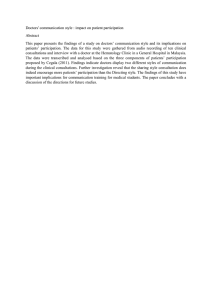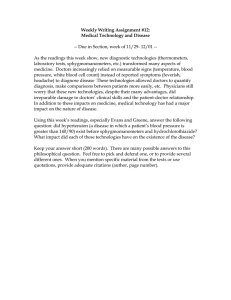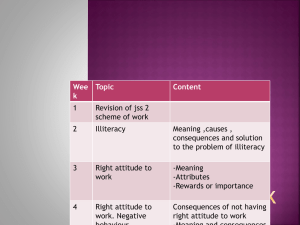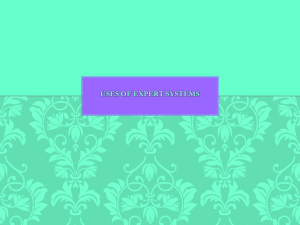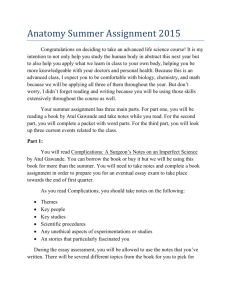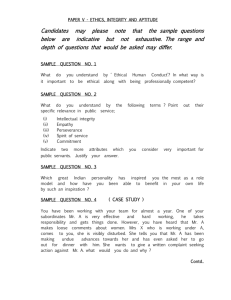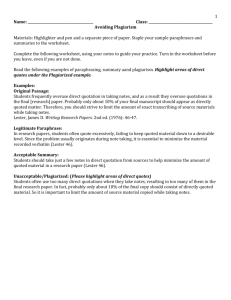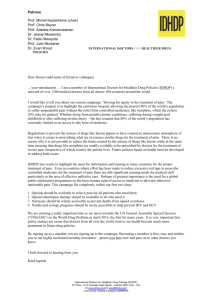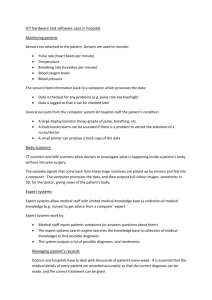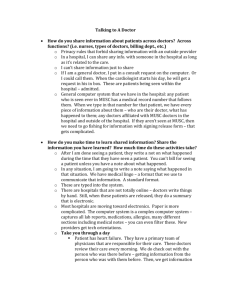Atul G. assignment
advertisement
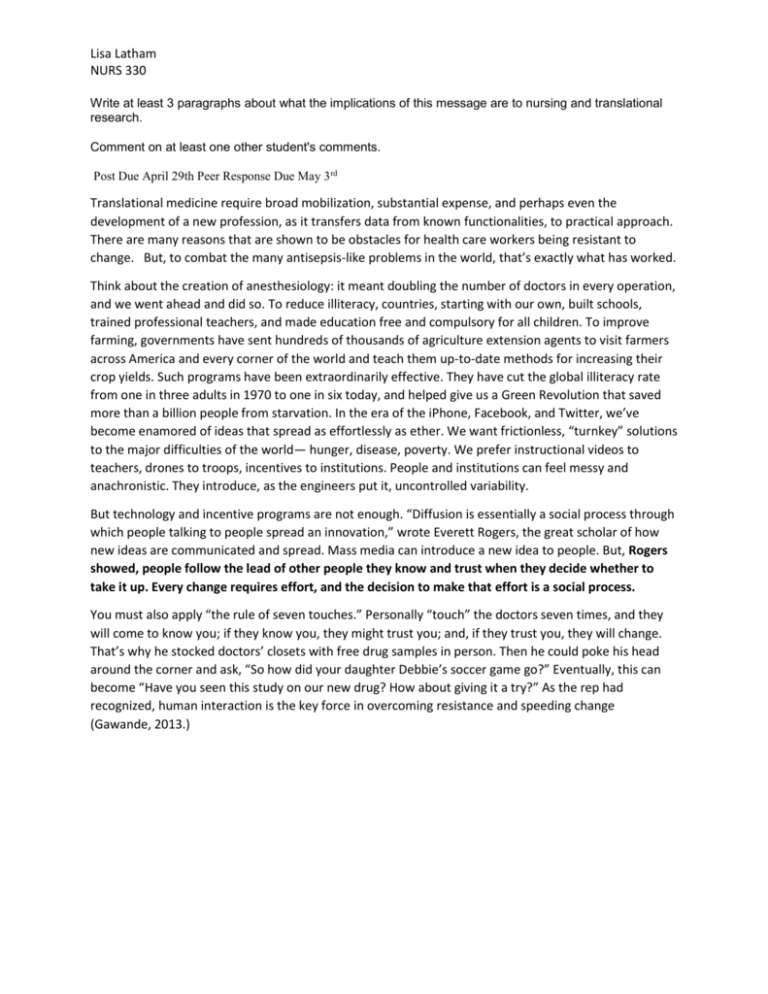
Lisa Latham NURS 330 Write at least 3 paragraphs about what the implications of this message are to nursing and translational research. Comment on at least one other student's comments. Post Due April 29th Peer Response Due May 3rd Translational medicine require broad mobilization, substantial expense, and perhaps even the development of a new profession, as it transfers data from known functionalities, to practical approach. There are many reasons that are shown to be obstacles for health care workers being resistant to change. But, to combat the many antisepsis-like problems in the world, that’s exactly what has worked. Think about the creation of anesthesiology: it meant doubling the number of doctors in every operation, and we went ahead and did so. To reduce illiteracy, countries, starting with our own, built schools, trained professional teachers, and made education free and compulsory for all children. To improve farming, governments have sent hundreds of thousands of agriculture extension agents to visit farmers across America and every corner of the world and teach them up-to-date methods for increasing their crop yields. Such programs have been extraordinarily effective. They have cut the global illiteracy rate from one in three adults in 1970 to one in six today, and helped give us a Green Revolution that saved more than a billion people from starvation. In the era of the iPhone, Facebook, and Twitter, we’ve become enamored of ideas that spread as effortlessly as ether. We want frictionless, “turnkey” solutions to the major difficulties of the world— hunger, disease, poverty. We prefer instructional videos to teachers, drones to troops, incentives to institutions. People and institutions can feel messy and anachronistic. They introduce, as the engineers put it, uncontrolled variability. But technology and incentive programs are not enough. “Diffusion is essentially a social process through which people talking to people spread an innovation,” wrote Everett Rogers, the great scholar of how new ideas are communicated and spread. Mass media can introduce a new idea to people. But, Rogers showed, people follow the lead of other people they know and trust when they decide whether to take it up. Every change requires effort, and the decision to make that effort is a social process. You must also apply “the rule of seven touches.” Personally “touch” the doctors seven times, and they will come to know you; if they know you, they might trust you; and, if they trust you, they will change. That’s why he stocked doctors’ closets with free drug samples in person. Then he could poke his head around the corner and ask, “So how did your daughter Debbie’s soccer game go?” Eventually, this can become “Have you seen this study on our new drug? How about giving it a try?” As the rep had recognized, human interaction is the key force in overcoming resistance and speeding change (Gawande, 2013.)
